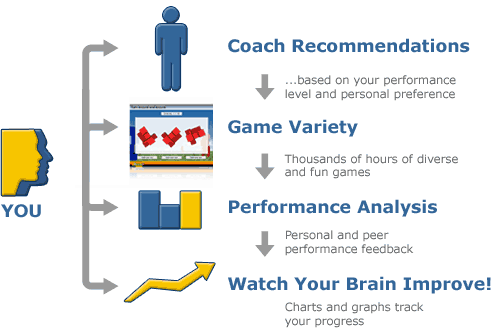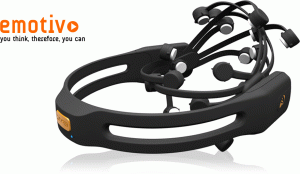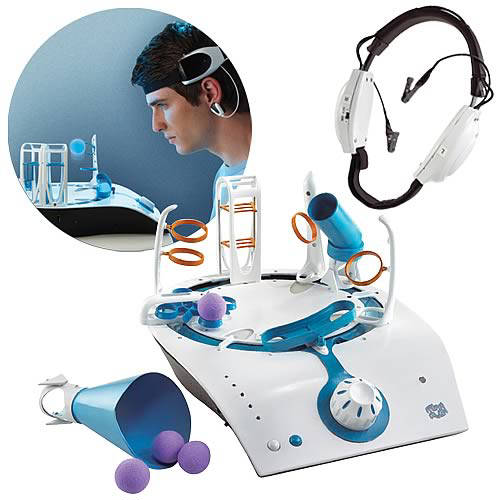Benchmark Your Cognitive Fitness with Precision
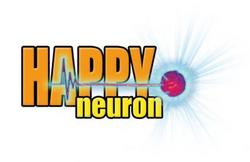 According to a recent press release, Happy Neuron, a brain training company has amassed a database of some 50 million training results. This is the biggest database of its kind and allows them to compare your cognitive training results to peers more precisely than anyone else on the market.
According to a recent press release, Happy Neuron, a brain training company has amassed a database of some 50 million training results. This is the biggest database of its kind and allows them to compare your cognitive training results to peers more precisely than anyone else on the market.
Happy Neuron uses games to train your brain. They have games for attention, language, memory, visual-spatial and executive function.
I am interested to hear from readers that use Happy Neuron’s products.
Categories: Executive Function, Memory and Learning, Software, Training Tags: brain training, games
Brain Training Software Fails Key Scientific Test
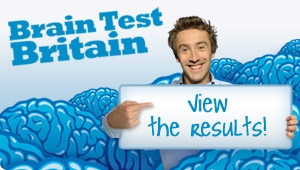 Last year the BBC in collaboaration with leading neuroscientists conducted a large-scale scientific test of brain training software. They wanted to answer the question – does brain training software work?
Last year the BBC in collaboaration with leading neuroscientists conducted a large-scale scientific test of brain training software. They wanted to answer the question – does brain training software work?
The study recruited over 11,000 healthy adults of all ages and had them train their brains using software 3 times per week for 6 weeks. The results were negative.
Those that did the brain training showed no cognitive improvement beyond what you get from surfing the internet for the same period of time.
Scores on the tests provided by the brain training software did improve but none of that translated into better cognitive performance on tasks outside the software. This held up for a wide range of cognitive activities including reasoning, planning, problem-solving, short-term memory, attention, visual spatial processing and mathematics.
This is a landmark study that calls the relative effectiveness of brain trainig software into question. To quote the study:
 The results are truly amazing. The Brain Test Britain study found no evidence that the benefits of playing brain training games transfer to other brain skills. (However, the results do suggest that further research into brain trainers aged 60 and over is required. Dr Adrian Owen (pictured to the right) said: “The result is crystal clear. Brain training is only as good as spending six weeks using the internet. There is no meaningful difference.”
The results are truly amazing. The Brain Test Britain study found no evidence that the benefits of playing brain training games transfer to other brain skills. (However, the results do suggest that further research into brain trainers aged 60 and over is required. Dr Adrian Owen (pictured to the right) said: “The result is crystal clear. Brain training is only as good as spending six weeks using the internet. There is no meaningful difference.”
You can review the findings, look at the details behind the work and even play the games that were used for the training at UK Lab. They are continuing the study with participants that are 60 years and older.
I am interested to hear from readers that do regular software-based braining training exercises. What do you think of this study? Will it change your brain training routine?
Categories: Executive Function, Memory and Learning, Mental Focus, Perception, Software, Training Tags: brain training
Get Benefits of Long-Term Meditation in Just Days?
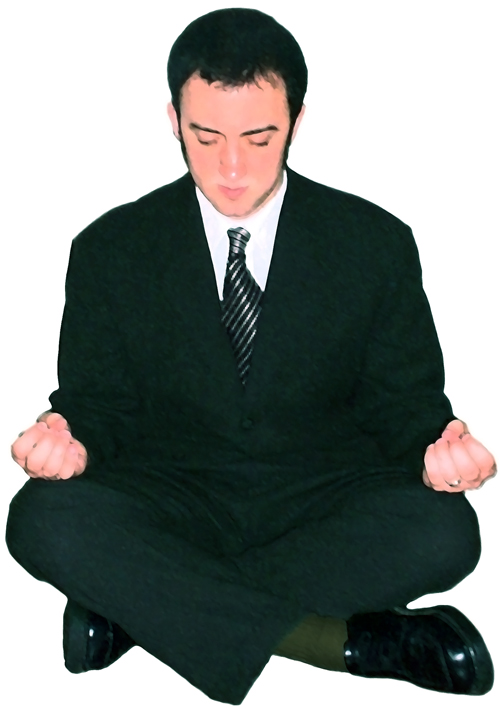 It was about 10 years ago when research studies began to suggests that a little bit of physical activity could be good for you. Taking a short walk or even just climbing a flight of stairs might be heart-healthy. This was a big surprise for many as traditional wisdom was that you must work-out multiple times per week for many weeks to see benefits.
It was about 10 years ago when research studies began to suggests that a little bit of physical activity could be good for you. Taking a short walk or even just climbing a flight of stairs might be heart-healthy. This was a big surprise for many as traditional wisdom was that you must work-out multiple times per week for many weeks to see benefits.
Now the same may be emerging for brain training at least in the area of mindfulness and meditative practice. I am seeing studies that suggest a few days of training may produce what we once thought took months or years. The Science Daily Blog reports one such study, Brief Meditation Helps Cognition:
“Psychologists studying the effects of a meditation technique known as “mindfulness ” found that meditation-trained participants showed a significant improvement in their critical cognitive skills (and performed significantly higher in cognitive tests than a control group) after only four days of training for only 20 minutes each day.”
Specific improvements included increased mental energy, reduced anxiety and improved working memory, visual/spatial processing and executive functioning (attention, planning thinking).
Interestingly, no special training technique was used.
As described in the paper, “participants were instructed to relax, with their eyes closed, and to simply focus on the flow of their breath occurring at the tip of their nose. If a random thought arose, they were told to passively notice and acknowledge the thought and to simply let ‘it’ go, by bringing the attention back to the sensations of the breath.” Subsequent training built on this basic model, teaching physical awareness, focus, and mindfulness with regard to distraction.
Mindfulness training is not as natural as climbing a flight of stairs or taking a walk but clearly it is something we can learn. I am interested to hear from readers that practice mindfulness, especially how they were able to initially learn the technique.
Source: Image of Meditating Man
Categories: Ancient Ways, Executive Function, Mental Focus, Training Tags: meditation, mental energy, mindfulness
Working Memory Training
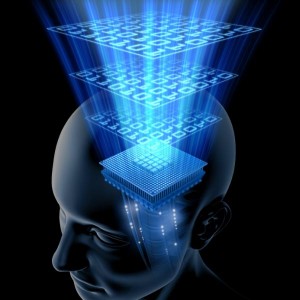 Working memory loads and processes the information we can pay attention to at any given time. It is has a limited capacity (4-9 pieces of information) and it does not last long (3-20 seconds). Technically working memory is different but related to short-term memory. It involves the control and attentional processes for manipulating the information. Some experts call it the search engine of the brain:
Working memory loads and processes the information we can pay attention to at any given time. It is has a limited capacity (4-9 pieces of information) and it does not last long (3-20 seconds). Technically working memory is different but related to short-term memory. It involves the control and attentional processes for manipulating the information. Some experts call it the search engine of the brain:
“Working Memory is an essential cognitive function that allows us to keep information in mind, manipulate it, and use it in our thinking. It is the way that we process the onslaught of information that we encounter every day.”
A simple thing but clearly it plays a major role how well we perform all manner of mental activities. Techniques for improving working memory will be a frequent topic on the Next Brain Blog.
One program that has seen some real success is Cogmed. This is a neuroscience-based program that is geared to age group and goal. The program uses software, is coach-guided for first few weeks and has a self administered maintenance phase. They have a high completion rate, many specific success stories and are backed by clinical studies.
I am interested to hear from readers that have used Cogmed or other working memory training programs to achieve peak cognitive performance.
Source: Image of Brain
Categories: Executive Function, Mental Focus, Software, Training Tags: brain training
Using Neurofeedback to Train Your Mind
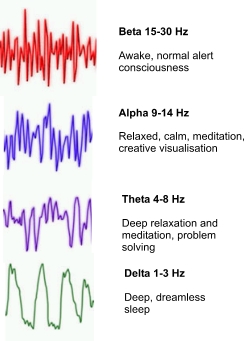 Neurofeedback training devices translate brainwaves into an external signal such sounds, graphs on a computer screen, movement of your computer’s cursor, action in a video game and even the motion of remote controlled toys. Being able to hear or see your brainwaves in this way provides essential feedback for learning how to control them to improve mental focus, modulate your mood and sharpen your thinking.
Neurofeedback training devices translate brainwaves into an external signal such sounds, graphs on a computer screen, movement of your computer’s cursor, action in a video game and even the motion of remote controlled toys. Being able to hear or see your brainwaves in this way provides essential feedback for learning how to control them to improve mental focus, modulate your mood and sharpen your thinking.
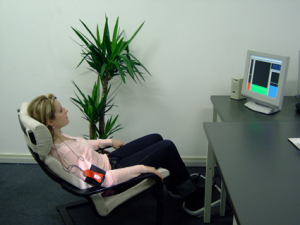 Neurofeedback has been proven to work in a clinical setting. You can go to a therapist and in about 10 weeks achieve some real results. A typical setup is shown to the left.
Neurofeedback has been proven to work in a clinical setting. You can go to a therapist and in about 10 weeks achieve some real results. A typical setup is shown to the left.
Devices for use by consumers at home are starting to hit the market. There are general purpose brain computer interfaces (BCI) such as the EPOC headset from Emotiv. It sells for $300 and comes with some basic games.
The only other consumer-level BCI I am aware of is being sold by Neurosky. It is cheaper ($199) but it comes with a single sensor versus the 14 for EPOC. The Neurosky technology is being used to develop mind-controlled toys. Check out Mattel’s Mindflex below.
It is not clear if the at-home neuofeedback devices are producing results or if they even work well. Consumer reviews tend to be mixed. For example, Mindflex Game has 58 customer reviews on Amazon:
- 5 star (14)
- 4 star (18)
- 3 star (8)
- 2 star (6)
- 1 star (12)
No matter, as the technology improves there can be little doubt that neurofeedback devices will become a powerful force for improving our cognitive performance. Brain computer interfaces, mind controlled toys and video games as well as other consumer-level neurofeedback devices will be covered frequently in the Next Brain Blog.
I am very interested to hear from readers that use neurofeedback in a clinical setting or at home. Please leave a comment and share your experiences.
Source: Image of Brainwaves and clinical use of Neurofeedback.
Categories: Executive Function, Mental Focus, Perception, Software, Training Tags: BCI, brain training, Brainwave Entrainment, games, neurofeeback
Want to Dramatically Improve Self-Control?
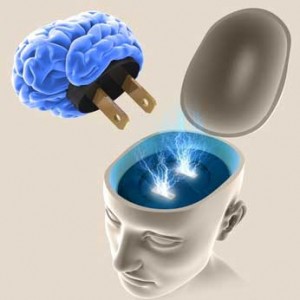 Then learn to manage your mental energy!
Then learn to manage your mental energy!
Science has made considerable inroads over the last few years defining, measuring and understanding the role mental energy plays in cognitive performance. Mental energy is defined as the combination of the ability to do mental work, the motivation for doing that work and your subjective feeling of fatigue. Key findings about mental energy include:
- We only have so much to use – it is a limited resource
- Exercising self-control or regulating our thoughts, emotions and behavioral responses burns considerable mental energy – much more than other cognitive processes such as learning and decision-making
- Running low on mental energy means loss of impulse control
- We can do specific things to replenish our supply of mental energy
Given the central role that mental energy (and its management) plays in cognitive performance it will be a frequent topic on the Next Brain blog.
Techniques for getting started in managing your mental energy include:
- Measuring your level of self-control and other cognitive tendencies that make extensive use of mental energy
- Journaling to understand how you wisely (or not) you use mental energy throughout the day
- Planning or budgeting your mental energy so you don’t set goals or engage in activities that result in sever depletion
- Developing habits that naturally restore your supply
Little things make a big difference when it comes to managing mental energy.
Categories: Executive Function, Lifestyle, Manage Emotions, Mental Focus, Training Tags: mental energy
Integrative Body-Mind Training Improves Brain Functions in Just Five Days!
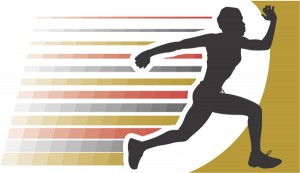 There is growing evidence that a fast-track approach to mediation may in fact produce results in as little as five days. This would be a breakthrough as using mindfulness or mediative techniques to improve your cognitive functioning normally takes months or years.
There is growing evidence that a fast-track approach to mediation may in fact produce results in as little as five days. This would be a breakthrough as using mindfulness or mediative techniques to improve your cognitive functioning normally takes months or years.
The technique is called integrative body-mind training (IBMT) and requires 20 minutes per day for five days. Subjects with no previous training in mediation techniques showed significant improvements in mental focus, mood and stress.
The process involves using a number of techniques together under the guidance of a coach. The seminal article on IBMT, Short-Term Medication Training Improves Attention and Self-Regulation, describes it this way:
“Training in this method is followed by 5 days of group practice, during which a coach answers questions and observes facial and body cues to identify those people who are struggling with the method. The trainees concentrate on achieving a balanced state of mind while being guided by the coach and the compact disc that teaches them to relax, adjust their breathing, and use mental imagery.”
A more detailed description of how this works over a five day period can be found in this Introduction to IBMT written by Dr. Yi-Yuan Tang a pioneer in the field.
I am interested to hear from readers that can recommend a coach, suggest resources or share experiences about IBMT. I’d like to try it and write additional posts for the next Brain Blog.
Source: Image of running man.
Categories: Ancient Ways, Executive Function, Memory and Learning, Mental Focus, Music and Audio, Training Tags: meditation, mindfulness
DASH Diet + Aerobic Exercise = 30% Improvement in Brain Function
 According to a news release by the American Heart Association, a diet developed to improve blood pressure combined with aerobic exercise over a four month period appears to improve the mental functioning of older overweight adults. Researchers claim mental functioning improved by 30%. Quoting the news release:
According to a news release by the American Heart Association, a diet developed to improve blood pressure combined with aerobic exercise over a four month period appears to improve the mental functioning of older overweight adults. Researchers claim mental functioning improved by 30%. Quoting the news release:
“Researchers assessed mental functioning with a battery of neuropsychological tests, including Executive Function-Memory-Learning and Psychomotor Speed. These tests measure cognitive skills involving manipulation of ideas and concepts and planning ahead. The tests were given before and after the four-month treatment program.”
The diet plan is called DASH (dietary approaches to stop hypertension) and involves:
- Eating more fruits, vegetables, whole grains, fish, poultry, nuts and foods rich in magnesium, potassium, and calcium
- Cutting back on red meats high total-fat foods and sweets
If you want to give it a try there are specific guidelines, recommendations and even food plans on The Dash Diet Plan Eating site.
The aerobic exercises were basic but supervised and took place for 30 minutes three times per week.
It is important to note that you have to do both the diet and exercise to get the improvement in mental functioning. Control groups that did one or the other, or nothing showed no improvement in mental functioning. These type of combination effects (doing two or more interventions to get a boost in cognitive performance) are common and will be frequently covered on the Next Brain Blog.
Source: Exercise and Diet Image
Categories: Cognitive Decline, Diet, Executive Function, Lifestyle, Memory and Learning, Older Adult, Other, Problem Solving Tags: exercise, fruit

